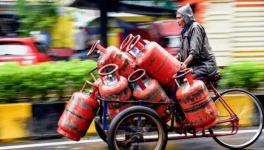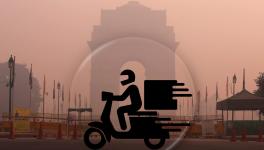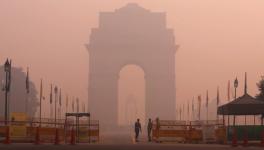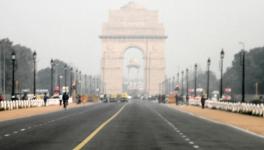Jab, Hook and Smog for Gold: Top Women Boxers to Suffer Delhi’s Pollution at World Championships
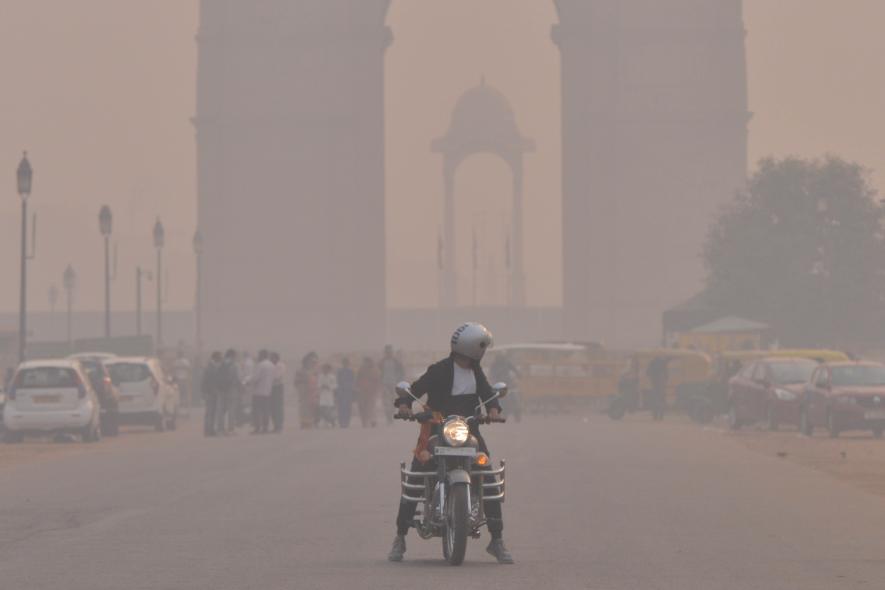
Many boxers at the AIBA Women’s World Boxing Championships are training indoors to stay away from New Delhi’s infamous pollution without realising that the main danger — nano particulate matter (PM 2.5 and smaller) — is equally bad inside air-conditioned
Acclimatisation is a priority for athletes and a key factor for hitting the groove ahead of a competition in a foreign city. They usually land early enough to get used to the local weather, the altitude etc. The 300-odd boxers in New Delhi for the AIBA Women’s World Boxing Championships are also keen to get used to the elements before the start of competitions on November 15. And they are struggling… After all, they can’t acclimatise to pollution and poisonous air, can they?
The Championships, to be staged from November 15-24 at the Indira Gandhi Indoor Stadium in the heart of smog-filled New Delhi, would leave the boxers with long-term damage, feel experts. The organisers, meanwhile, are brushing it aside as a non-issue, pointing out that the bouts will be staged indoors and hence relatively shielded from the ills of pollution.
“It's not such a massive issue that it is really made out to be,” says Boxing Federation of India (BFI) president Ajay Singh. “Firstly, boxing is an indoor sport and we have the best indoor facilities in the world, and therefore there won't be any huge repercussions.”
Also Read | Mary Kom: Boxing World Moves On, India Remains Unchanged
However, many athletes have complained about the poor air quality, and almost all the boxers Newsclick spoke to found it impossible to train in the “dirty” air. Of course, they were keen to play down the issue as well, perhaps fearing that criticising an official tournament might attract sanctions.
The sad part is that there are many athletes, both foreign and Indian, who seem to be oblivious to the magnitude of the problem.
They, alarmingly, do not realise that the pollution in Delhi — majorly due to nano particulate matter (PM 2.5 and less) — would have long-term implications, and not just something that would only have an effect on their performance at the competition, or give them a sore throat or irritation.
“Let's say, if this competition would have been in some other place then I would have gone for a jog outside. But now I concentrate on my boxing training [indoors],” says Mira Potkonen, who won bronze in the 60kg category at the Rio Olympics in 2016.
“I try to not stay outside for too long,” adds the 37-year-old. “We have an excellent gym in the hotel, the air conditioner and the air in the gym is very good. So we train there as much as we can.”
Also Read | Opening Highs: Indian Women’s Cricket Team on a Roll at ICC World T20 in Caribbean
Potkonen comes from Finland — one of the least polluted countries in the world. She would find it tough to manage in Delhi, forget getting used to it. Then again, one can never get the lungs seasoned for pollution, and it is madness to think that is the way out.
However, some, including Indian star MC Mary Kom, feel it’s just a matter of getting used to. Sickeningly enough, one coach in the Indian team setup felt that the pollution might give an added “home advantage” for the boxers. “Our boxers train in Delhi right through the year and are used this. Things should not be a problem for them,” says the official.
Meanwhile Potkonen, like many other boxers in the city for the championships, are trying to bypass the problems by limiting their exposure to what experts term “visible pollution”. But the nano particulates, that are the real danger, are invisible, and no amount of air conditioning, or greenery, would have a bearing on its concentration.
“And once lodged in the lungs, they remain there. There is no way it gets expelled out by the system,” says Dr. Rajat Chauhan, a city-based musculoskeletal and sports medicine specialist and an active ultra marathoner. Despite his running credentials, Dr. Chauhan has been very vocal about discouraging any form of sporting exertion in the city during winter, when the pollution hits peak proportions.
Also Read | No Country for Adventure: Challenges Extreme Sports Athletes Face in India
“Because there is no way we can stop this,” he says. “People justify that Delhi is a green city and the green cover would give protection. But no, we are not dealing with a CO2 or emission problem here. The particulate matter what we are dealing with cannot be filtered away by greenery. And, latest studies have shown that indoors are equally dangerous as the outdoors. This boxing event shouldn’t have been staged here.”
The Boxing Federation of India, and the International Boxing Association (AIBA) seem to have ignored the basic safety of the athletes by exposing them to this hazard that could have been easily avoidable. It is not like India doesn’t have other cities where a boxing event of global stature could be hosted.
If the BFI insisted on Delhi, the AIBA’s inspection mechanism should have checked out all factors and rejected the proposal considering the city’s huge pollution problem this time of the year.
Also Read | Virat Kohli Should Stick To Batting and Spare India His Cricket Nationalism
AIBA failed to do so. In fact, this failure could also add to the international body’s woes with the International Olympic Committee (IOC), which is on the verge of removing boxing from the Olympic programme at the Tokyo Olympics in 2020 due to allegations of rampant corruption and mismanagement. While the IOA jury is deliberating the sanctions, the staging of a world championship in what is essentially a gas chamber, would further dent boxing’s case.
But the biggest worry is not the denting of the sport’s long-term relevance at the Olympic Games, or its standing with the IOC. Living in Delhi, I, like the millions here, are grappling with the issue of pollution on a day-to-day basis and realise its implication on health and long-term well being, knowing the entire magnitude of the problem.
And here we see 300 of the world’s best women boxers, in the prime of their physical prowess, ready to give everything to win on the world stage, while not realising the very effort — their grit and fight — could potentially leave them crippled later in life.
“It is not just about the 12 minute or 15 minute duration of the bout,” says Dr. Chauhan. “The athletes are already here training for it and getting exposed, their lungs getting filled with soot and poison. The analogy here is comparing it to drinking water from the drain, and pure water. One can’t argue that you spent time getting used to drinking water from the drain and now it is OK to continue doing so. That’s dangerous for health and this is too. The problem is that the result is long-term. Cancer doesn’t happen a day or two after exposure, right?”
A similar sentiment was echoed by Santiago Nieva, Indian boxing’s high performance director. The coach from Sweden hopes that the situation won’t affect any boxers, not just his wards.
“It’s not good [for the boxers],” says Nieva. “It’s not good in the long term and I think the government must find solutions for this pollution. It would not affect us [performance in the championship], and hopefully it won’t affect the other boxers as well.”
Then again, the effect would not turn up overnight — time will reveal what price the boxers would end up paying for a World Championship medal in the 2018 edition in New Delhi!
Get the latest reports & analysis with people's perspective on Protests, movements & deep analytical videos, discussions of the current affairs in your Telegram app. Subscribe to NewsClick's Telegram channel & get Real-Time updates on stories, as they get published on our website.









